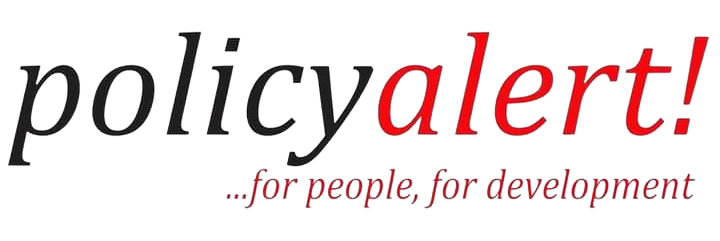According to the Department of Petroleum Resources (DPR) 2017 Oil and Gas Industry Annual Report,[1] a total of 42 licenses, comprising 35 Oil Mining Licenses (OMLs) and seven Oil Prospecting Licenses (OPLs), held by international and indigenous oil companies are due for renewal in the year 2019.
We note that in the past, eagerness to encourage investment had led the Federal Government to negotiate lower rates for taxes and royalties which shortchanged Nigeria of enormous revenues. We, therefore, request that the Federal Government of Nigeria applies the highest standards of transparency, fairness, competition, and accountability across the entire process of re-awarding the licenses for these expired blocks.
Nigeria has lost billions of dollars in potential revenue due to the continued refusal of the government to conduct an open and competitive bid round for oil blocs in the country. The country especially missed the opportunity of conducting a licensing round during the oil boom years of 2010 to 2014. In the last 12 years, no competitive oil licensing round has been held for Nigeria’s oil blocs, and even those before that period were riddled with controversy. The executive discretion, cronyism and lack of openness that have characterized decision-making around the award of blocks over the years have driven down competition, fueled massive corruption and adversely affected returns to Nigeria from the sector.
The expiration of these licenses, therefore, provides a critical opportunity to em-place mechanisms that will guide the future management of the sector so that Nigeria can begin to benefit fully from her natural resource wealth and translate the same to better development outcomes for citizens.
We the undersigned organizations, therefore call on the Federal Government of Nigeria to do the following as it considers the renewal or re-award of the licenses:
- Publish overall rules for the various license award processes including timelines and application requirements, and clear technical and financial criteria against which companies are being assessed, and information about appeal processes
- Publish the names of all the companies applying for the oil and gas prospecting and mining licenses, including during prequalification
- Request and publicly disclose information on the Beneficial Owners of bidding companies and use this information to screen applicants for conflicts of interest and corruption risks at the point of prequalification or prior to license award
- Insist on and disclose information about consultative processes with communities (including Free Prior and Informed Consent processes) around the awarding of oil and gas prospecting and mining licences, especially on matters that directly concern the community, including community development agreements, and make publicly available all documents on Environmental and Social Impact Assessments (ESIAs) and Environmental and Social Management Plans (ESMPs) for all future licences
- Publish the current and historic owners and operators of all oil blocks, including marginal fields and transferred licenses, and the total reserves of oil and gas, including total amounts recovered thus far and total revenues outstanding
- Disclose for each oil block licence awarded, the full text of the main agreements/contracts, as well as annexes and amendments in user-friendly and machine-readable formats in line with Nigeria’s open contracting commitments within the Extractive Industries Transparency Initiative (EITI)[2], the 2016 UK Anti-Corruption Summit[3] and via the Open Government Partnership (OGP).
We remain committed to the demand for legally mandated processes and oversight mechanisms for the allocation of blocks and marginal fields as this is an absolute necessity for sanitizing the sector, stemming from illicit flows from oil deals and boosting revenues accruable to government and citizens. We also believe that the above measures will in the near term improve competition, deter fraud and corruption, build confidence among investors and citizens, promote a more competitive and enabling business environment, ensure that Nigeria obtains a better deal for its oil and enable stakeholder oversight towards the translation of resource wealth into prosperity for its citizens.
Signed by the following civil society organizations:
- Tijah Bolton-Akpan
Policy Alert
2.Olanrewaju Suraj
Human and Environmental Development Agenda (HEDA)
3.Oke Epia
OrderPaper
4. Peter Egbule
Publish What You Pay (PWYP) Nigeria
5. Innocent Edemhanria
Africa Network for Environment and Economic Justice (ANEEJ)
6. Marie-Anne Abagu
Women Environmental Programme (WEP)
7. Rev. Fr. Edward Obi
National Coalition on Gas Flaring and Oil Spills in the Niger Delta (NACGOND)
8. Umoh Isua-Ikoh
Peace Point Development Foundation (PPDF)
9. Chinedu Bassey
Civil Society Legislative Advocacy Centre (CISLAC)
10. Edwin Ikhurior
ONE Campaign
11. Faith Nwadishi
Centre for Transparency Advocacy (CTA)
12. Adeola Adeopa-Ekanem
Partnership for Community Empowerment (PACE)
13. Emem Okon
Kebetkache Women Resource and Development Centre
14. Francesca Chiedu
Citizens Connect
15. Peace Edem
Youth for Change Initiative (YOFCI)
16. Odeh Friday
Accountability Lab
17. Dr. Mina Ogbanga
Centre for Development Support Initiatives (CEDSI)
18. Olusegun Elemo
Paradigm Development Support Initiative (PLSI)
19. MacDonald Ekemezie
Konyelum Imalah Foundation (KIF)
20. Lucy Abagi
Connected Development (CODE)
21. Prince Israel Orekha
Connected Advocacy
22. Ken Henshaw
We the People
[1] https://www.dpr.gov.ng/wp-content/uploads/2018/10/2017-NOGIAR-WEB.pdf
[2] https://eiti.org/news/eiti-launches-2019-eiti-standard l
[3]https://assets.publishing.service.gov.uk/government/uploads/system/uploads/attachment_data/file/523799/NIGERIA-_FINAL_COUNTRY_STATEMENT-UK_SUMMIT.pdf
